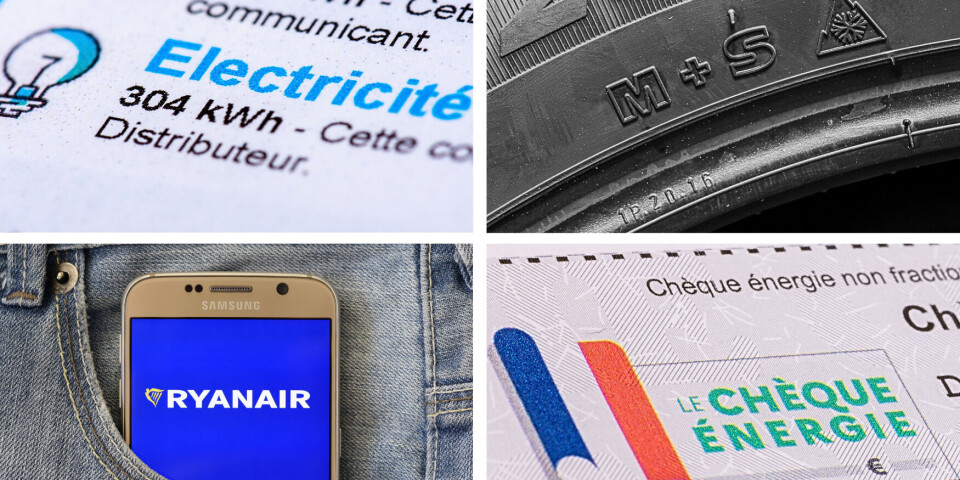MPs vote to replace France’s property wealth tax with ‘unproductive wealth’ levy
France’s proposed ‘unproductive wealth’ tax - part of ongoing 2026 budget talks - would cover assets such as art, jewellery and some assurance vie policies
The amendment, proposed by centrist MP Jean-Paul Mattei (MoDem), passed narrowly by 163 votes to 150
Victor Velter/Shutterstock
French MPs voted in favour of replacing France’s property wealth tax with a broader tax on ‘unproductive wealth’ during 2026 budget discussions on Friday (October 31).
The change is not final: it must still pass scrutiny during the remainder of the parliamentary process for the budget and could also be rejected by the Senate.
Below we look at what is included in this new tax proposal for eligible households.
MPs voted to transform the impôt sur la fortune immobilière (IFI) into an impôt sur la fortune improductive - a shift that would expand the scope of the tax from solely real estate to a wider range of luxury and so-called ‘non-productive assets’.
The amendment, proposed by centrist MP Jean-Paul Mattei (MoDem), passed narrowly by 163 votes to 150, supported by an unusual alliance of Socialists, far-right Rassemblement National (RN) and centrist MoDem and Liot MPs.
The government and its Renaissance allies opposed the measure, calling it uncertain in scope and revenue.
What the new tax would cover
If approved, the reform would mark a significant change in France’s approach to taxing personal wealth, moving it closer to the old ISF wealth tax abolished under President Macron.
Wealth tax would no longer apply just to real estate, but also to other so-called “unproductive” assets such as jewellery, art, luxury vehicles, yachts, aircraft, precious metals, digital currencies and some forms of assurance vie policies that are not tied to 'productive' investment.
Policies invested in unités de compte - that is, portfolios linked to shares or other market assets - would remain exempt, as they are considered to support economic activity.
The new tax would be charged annually at a single rate of 1%, replacing the current progressive IFI scale of 0.5% to 1.5%. However, the main home could be excluded from the assessment up to €1million in value (the current rules apply a 30% reduction to the value of the main home).
The threshold for liability would remain at €1.3million of net assets as for the IFI currently. Within that the tax would be applied from the first euro of taxable wealth after eligible deductions.
The current IFI raised €2.2billion in 2024, according to data from France’s tax administration (DGFiP), from around 186,000 households – roughly half the €4.2billion once generated by the former ISF in 2017.
Estimates for the new tax remain uncertain, though Socialist MPs claim it could bring in up to €2billion more than the IFI, while some economists warn that adopting a flat 1% rate might actually reduce receipts for the highest fortunes.
France's Ministry of Public Accounts has said preliminary modelling suggests total annual revenue could fall somewhere between €1billion and €3billion.
At present, the IFI is applied to households whose total taxable property wealth exceeds €1.3million of net property assets. The progressive tax levies apply from €800,000 of net taxable wealth (with a partial reduction available for households who are just in the first bracket).
French Wealth tax 2025
This article is an edited excerpt from our help guide to French wealth tax.
The full guide is available to buy for €9.50 at this link.
Subscribers can access it for free on the Subscriber resources page.
Supporters argue that the change would encourage investment in businesses and innovation, rather than luxury or speculative holdings.
Critics warn it could raise costs for savers and collectors, complicate asset valuations and reopen the political divisions that surrounded the former impôt de solidarité sur la fortune (ISF), abolished in 2017.
A parallel debate on the ‘Zucman tax’
The vote came days after the rejection of another wealth tax proposal, the so-called ‘Zucman tax’, named after economist Gabriel Zucman.
His plan would require that those with fortunes of €100million or more must pay in (total) taxation every year at least an amount equivalent to 2% of their wealth. The aim is to ensure the ultra-rich pay at least as much, proportionally, as other taxpayers.
If they are already paying this in other taxes such as income tax and IFI, no more would be required.
Political reactions
Socialist MP Philippe Brun described the amendment as “a re-establishment of the wealth tax” in a form more palatable to centrist MPs.
By contrast, left-wing La France Insoumise said the measure “weakens” the IFI by excluding the main residence up to a value of €1 million.
Within the governing coalition, Horizons MP Sylvain Berrios denounced the vote as “a tax on savings”, while Public Accounts Minister Amélie de Montchalin said there was “no certainty about what it will bring in”.
MoDem’s Marc Fesneau defended the reform as “neither the ISF nor the RN’s wealth tax”, but a balanced approach rewarding productive capital.




























